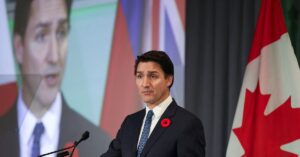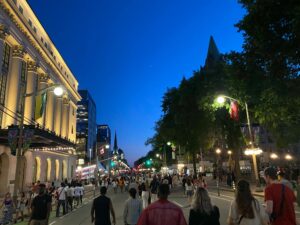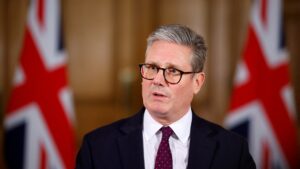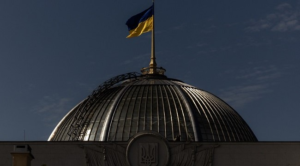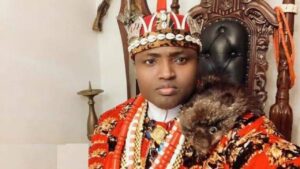
Toronto police Chief, Myron Demkiw, initially cast doubt on Umar Zameer’s innocence after he was acquitted in the death of Toronto Det. Const. Jeffrey Northrup, saying outside the courthouse following the verdict that police “were hoping for a different outcome.”
Facing heavy criticism for his choice of words, Demkiw backtracked a few days later, saying he wanted to be “crystal clear” that he accepted the verdict in the emotional trial. But he stopped short of apologizing — until now.
On Tuesday, during an address to the Toronto Police Service Board, Demkiw said he was sorry for his reluctance to accept Zameer’s innocence.
“I fully understand the concerns that have been expressed,” the chief said. “And I have been reflecting on my comments as the Chief of Police.
“I apologize for my choice of words in those early moments outside the courthouse.”
“I want to be very clear and repeat that I respect and accept the decision of the jury. As I have said, closure can never come at the expense of justice.
“I should have been more clear that I support and accept the verdict.”
Zameer was acquitted in the death of Northrup, who was hit by a vehicle in an underground parking garage at Toronto City Hall nearly three years ago.
Zameer pleaded not guilty to first-degree murder and claimed he didn’t realize Northrup and his partner, who were in plain clothes, were police officers.
He further testified that he didn’t realize he had run over Northrup as he panicked to flee and protect his child and pregnant wife from what he thought was a robbery attempt.
The jury ultimately agreed with him.
The judge in the case, Superior Court Justice Anne Molloy, made a rare apology to Zameer, and suggested that three witness officers who took the stand may have possibly colluded, something they all denied.
“When three versions of an event are wrong, and wrong in the same way, you must also consider whether there has been collusion between those witnesses,” Molloy told the jury.
On Tuesday, Demkiw said he’s focused on moving forward with two reviews spawned from the trial.
“We know there is nothing we can do now to bring back Detective Constable Northrup,” he said. “However, we do owe it to his legacy to ensure we are doing everything possible to prevent such a tragedy from ever happening again.”
“That is why I have initiated a full internal review of all aspects of plainclothes policing, including equipment and procedures for officer and the public’s safety.
“I have also asked the Ontario Provincial Police to conduct an independent review and they are now determining the terms of reference for the review as a result of the adverse comments made by Superior Court Justice Anne Molloy.”
Premier Doug Ford has also been pressed to apologize for comments he made when Zameer was released on bail in 2021.
At the time Ford called the decision “completely unacceptable.”
Unlike Demkiw, Ford has not apologized, saying he had “limited information” at the time he made the statement.
Asked again on Tuesday, Ford said he couldn’t comment on Demkiw’s apology, and reiterated that it’s a “sad situation.”
Meanwhile, the Canadian Civil Liberties Association (CCLA), which was vocal about Demkiw’s handling of the situation, has released a statement crediting the chief for taking an important “first step” with his apology.
“Today, the Toronto Chief of Police apologized for his initial statement wishing for a ‘different outcome’ in reaction to the not guilty verdict of Umar Zameer. The CCLA noted in its April 25 letter to the Toronto Police Service Board that the Chief had not yet apologized for his statement.”
“This is a first step. The Toronto Police Service Board must now ensure it takes policy action to ensure that the Chief of Police and officers assigned to cases do not publicly malign bail decisions or criminal verdicts in future.”

